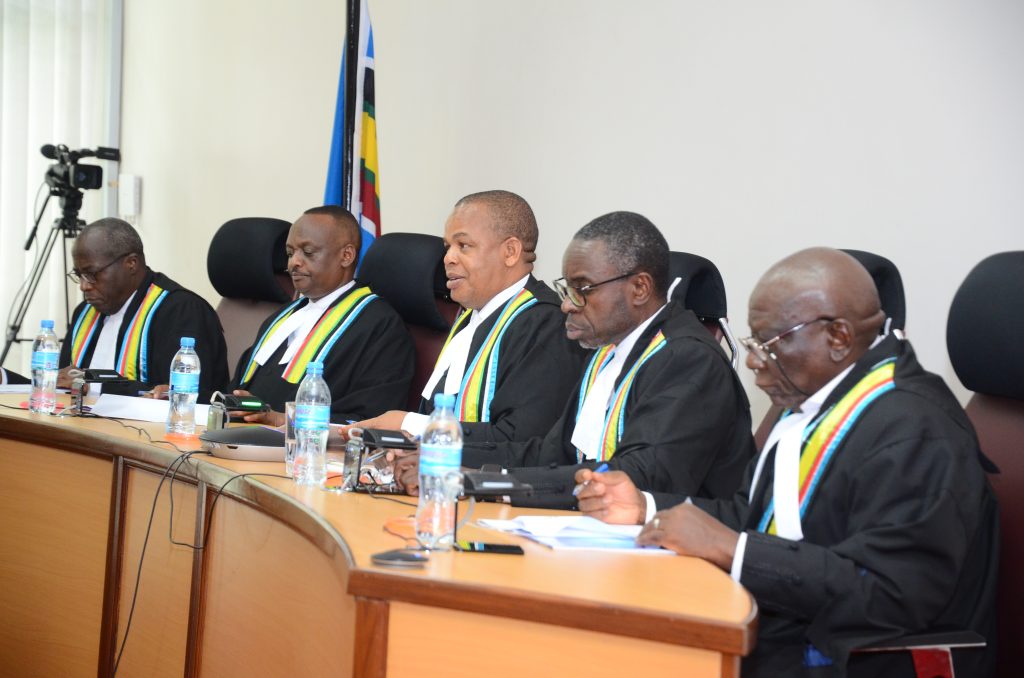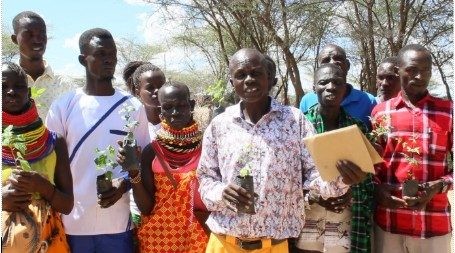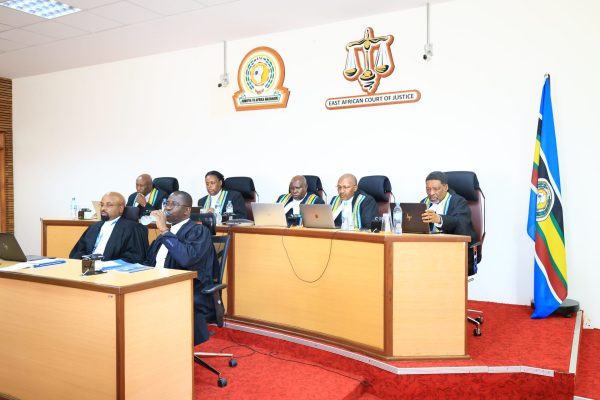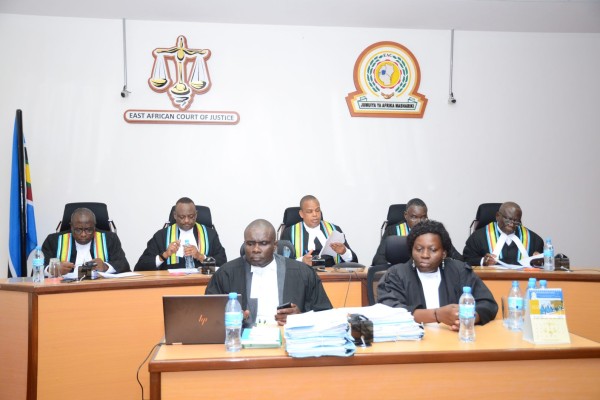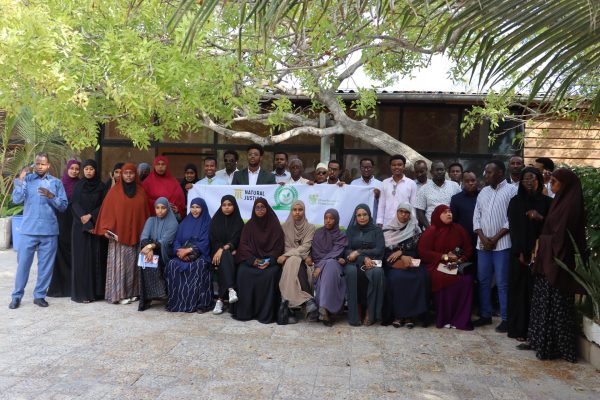FOR IMMEDIATE RELEASE
Arusha, 29 November 2023: Today, in a crucial ruling that will negatively impact the environmental rights of the people of Uganda and Tanzania, the East African Court of Justice (EACJ) handed down a judgment in the case that challenges the construction of the East African Crude Oil Pipeline (EACOP) by TotalEnergies, China National Offshore Oil Corporation (CNOOC) and the Ugandan and Tanzanian governments.
The EACJ ruled that the preliminary objection on jurisdiction raised by the Tanzanian and Ugandan governments, regarding the date when the case was filed, was out of the required timeframe and thus time barred. The EACJ found that the applicants should have filed the case as early as 2017 rather than in 2020 and, as a result, the court does not have jurisdiction to hear the matter.
As a result, the court has determined that the Applicants, who include the civil society organisations, Natural Justice (NJ), Centre for Food and Adequate Living Rights (CEFROHT), Centre for Strategic Litigation (CSL) and Africa Institute for Energy Governance (AFIEGO), are unable to proceed with the merits of the case in the EACJ.
The applicants will appeal this decision as they believe that the judgment failed to take into consideration pertinent facts that would have allowed the applicants to have the merits heard before the EACJ.
“The Court of First Instance for the East African Court of Justice failed to provide civil society with the chance to argue their case. This judgment marks a continuation of how the global north and various government institutions in Africa are blind to the destruction of the environment and the impact oil and gas has on the climate. Profit is valued above livelihoods and the environment.We will evaluate the judgment in detail and make the necessary actions to ensure we continue to protect the environment and the people who live in it.”
Lucien Limacher, Head of Defending Rights and Litigation, Natural Justice
“It is a somber day for the millions of East Africans who had anticipated that the court would allow the consideration of evidence concerning the environmental, social, and economic risks of the EACOP project and make a determination on our case based on its merits. Despite the setback we have suffered, we remain determined and are prepared to appeal this unjust ruling, firmly believing that the dangers posed by EACOP can and will be stopped.”
Dickens Kamugisha, Chief Executive Officer, Africa Institute for Energy Governance (AFIEGO)
“We respect the Court’s decision but feel that an opportunity to hold the governments of Tanzania and Uganda accountable for non-compliance with the EAC treaty provisions on the environment and other environmental laws has been missed. We shall engage our legal team and proceed with an appeal.”
Deus Valentine Rweyemamu, Chief Executive Officer, Center for Strategic Litigation (CSL)
“While we are disappointed by the court’s decision, we respect the legal process and will carefully review the ruling. Our commitment to environmental sustainability, social justice, and climate resilience remains unwavering. We will explore all available avenues to continue advocating for the well-being of our communities and the protection of our environment.”
Dale Onyango, Natural Justice, Advocate of the High Court of Kenya
Background of the case
Natural Justice, CEFROHT, CSL and AFIEGO, all East African civil society organisations, have been at the forefront of the legal battle against the construction of the EACOP. The organisations took a pivotal step on 6 November 2020, when they filed a case at the EACJ.
The case, which has come to be known as the “EACOP Case,” challenges the construction of the EACOP, a project spearheaded by French oil giant TotalEnergies and China National Offshore Oil Corporation. Natural Justice, CSL, CEFROHT, and AFIEGO contend that the project violates various provisions of the treaty of the East African Community (EAC), the Protocol for the Sustainable Management of the Lake Victoria Basin, the African Charter on Human and People’s Rights, the African Convention on Conservation of Natural Resources, the post-2020 Convention on Biological Diversity, and the Paris Climate Accords.
At the heart of the case are allegations that the project proponents failed to conduct effective and meaningful public participation and consultation. Furthermore, the civil society organisations assert that neither human rights assessments nor climate impact assessments were carried out before commencing the EACOP project. This, according to the organisations, raises significant concerns regarding environmental sustainability, social justice, and climate justice.
// ENDS
Notes to editors:
- For more information about the merits of the case please refer to this factsheet published by AFIEGO, CEFROHT and Natural Justice (2022). Court papers available on request.
- Read an oped by Attorney Mark Odaga
- Read previous press release here and here
- Learn more about the StopEACOP Campaign
For media inquiries contact:
- Salome Muiruri, Natural Justice, salome@naturaljustice.org +254721480153
- Claire Martens, Natural Justice, claire@naturaljustice.org +27 82 470 1187
- Diana Nabiruma, AFIEGO, dnabiruma@afiego.org +25 67 82 28 0073
- David Kabanda, CEFROHT, kabanda@cefroht.org
- Odur Anthony, CSL odur@strategiclawcentre.org +256772599462

